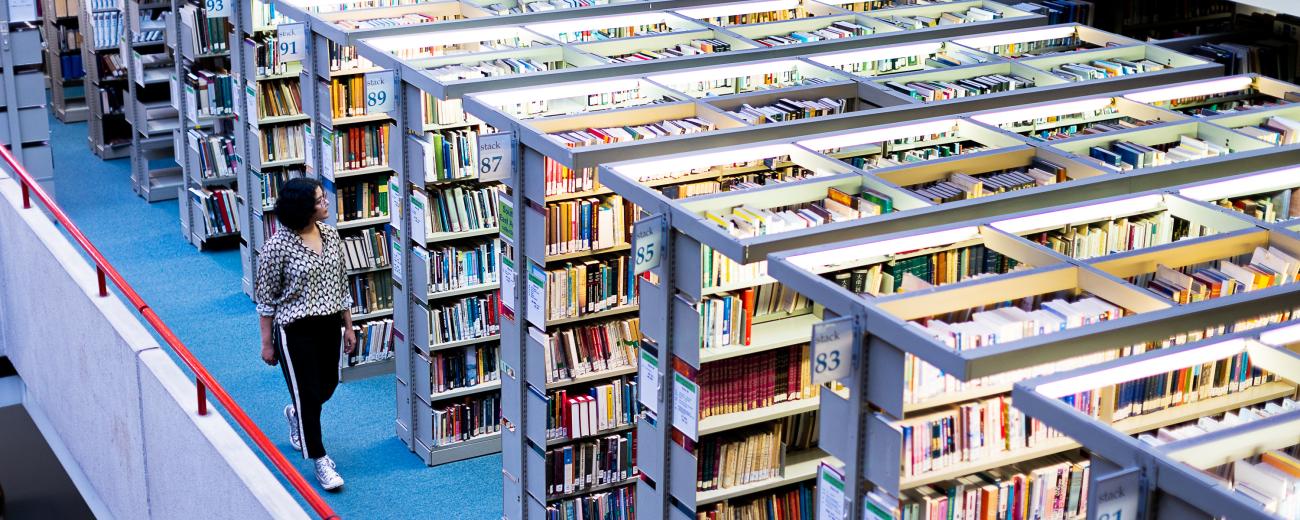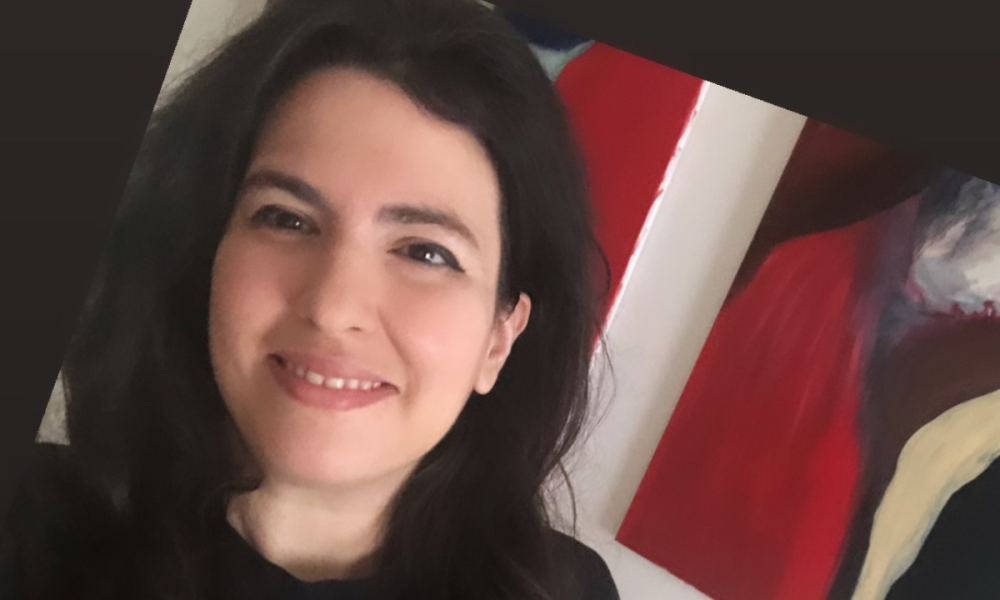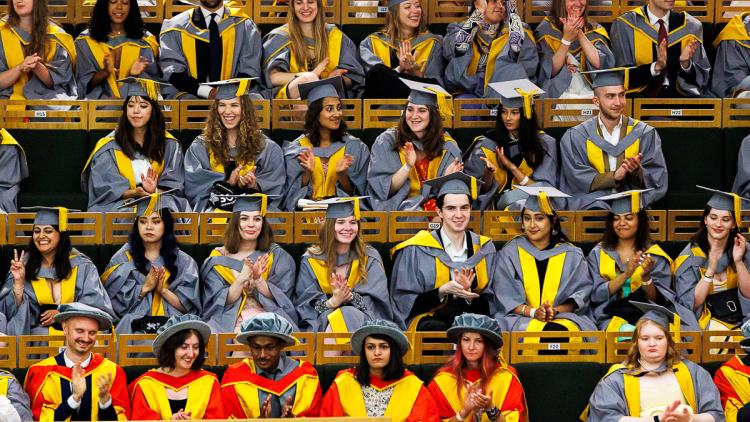How the SOAS Alumni Book Club keeps classroom conversations going


SOAS alumna Nour Saleh is the founder of Art Breath, an artist, moderator, and writer. She started the SOAS Alumni Book Club back in 2015. Ahead of the upcoming meeting in November, we asked Nour about her work exploring the link between the arts and politics and the origins behind a book club for alumni.
What led you to study International Politics at SOAS? How did it link to your previous work and study?
The questions that International Politics concerns itself with and raises, and led me to its study, are similar ones that took me into the creative realm.
The arts have the power to highlight socio-political issues and create change, and thus I went into studying politics to frame an understanding of the different notions that underpin and make politics, as well as to further learn about what encircles the subject, such as human rights or law.
Cementing a belief I had that politics and the arts are intertwined, having always felt absorbed by these two large subjects whether through study, making or viewing art and fashion, discussions or my interests—which probably stem from both my parents who exposed me to art and to politics and I was surely impacted by their experience of Lebanon. International Politics at SOAS gave me the opportunity to dive deeper into the Middle East alongside Sociology, hence ensuring that politics was subjecting itself to other disciplines and continuing to question.
With past art experiences of fusing the two disciplines, working for some creatives who cared beyond a projected image, I came into the MSc to explore crucial questions that affect us and our world, and curious about human behaviour, an undertaking that lives parallel to the arts, which in part, also searches for the core attributes that make us.
How was your time studying at SOAS?
It was great. And what I really appreciated were the class conversations with fellow students and tutors, where analyses and debates were engaged with. SOAS is a university where topics and classes are shaped with viewpoints, a chosen subject is studied from a variety of angles, taking into consideration all histories. It was wonderful to witness and also feel part of a group who were keen to partake in deeper questions and care for others. There is a strong thread felt that binds across and through the university, where tutors and students care passionately about the world, highlighting causes and issues, and propelling that sentiment forward.
As the founder of Art Breath, can you describe the work you do now?
Art Breath is a platform where the arts and politics collide. It sees art as a tool that can speak and help on matters that surround or affect us.
It was essential to me to make the platform interdisciplinary through a global lens because we/countries are all connected in one way or another, and I had previously noticed that there was a tendency for each of us to be confined within our own chosen industry and that perhaps, through a world view and by merging disciplines, it could lead to more empathy for one another and a greater understanding of any one concern.
So through interviews, articles, engaging in projects, workshops, and developing events, feeding the platform for art and topics to be contemplated, Art Breath shares voices from a variety of fields, conveying their knowledge, concerns, their art, work, thoughts and hopes. The platform as a virtual bridge aims through the arts to inspire the start of conversations, inject empathy, propel questions, highlight the arts as instruments of empowerment that bring attention to and aid with socio-political and personal matters, infiltrate notions and bloom out perspectives, showcase different narratives, and advocate on human rights, expression, peace and togetherness.
How would you describe the relationship between arts and politics?
There are many different layers to their relationship. Arts and politics interact, overlap and question each other. They breathe the same space, where politics affects us and society, and the arts do too; both play a vital role in our everyday lives, our concepts and ideas, our exchanges, as well as our well-being.
There are multiple sides to politics which are exposed to the arts and are impacted by them or impact them. Such as international relations, and within that soft power, political economy, where the creative industries are for many countries, a vital and important economic contributor, the notion of a collective memory, where the arts may play a part, or may contest it, art education and cultural policy, the accessibility to art in our lives, reclaiming public spaces through graffiti art and so forth.
The arts infiltrate the visible and invisible spaces and everything in between in a tangible and intangible manner, and with that, they carry power. Thus as a tool, the arts can be used for good or land in the hands of propaganda. It can unify, but it may also divide. They can form part of cultural exchanges or be used for hegemony/power purposes. Much may depend on the person, organisation or country, and the intention and choices either entity make on how to utilise the power of art.
A relationship of arts and politics may fuel to bring us all together, unite communities, be in the realm of peace-building, pave the way for understanding, create conversations, teach and push forward empathy. The arts form part of our voice, can help to create awareness, proclaim human rights and shed light on historical and political narratives, and can counter power - yet also, be used by it.
With technology and imagery ever present in our lives, and how that has and will affect us, with tech being more and more seeped into the arts - art can also play a dual part: help us to explore those matters, their socio-political effects and via creativity get through any challenges that arise. And even when theory and practice or vice versa don’t match, the arts can come back in and navigate between them, creating a starting point for a conversation.
I think probably for all of us, if not in most of our paths, we have been confronted with its relationship, whether directly or indirectly. The arts carry a multitude of ways they engage with politics, consequently, art often communicates sentiments and thoughts on what is happening globally, locally or personally, whether through an own artistic sentiment or documenting socio-political elements; however they do not have to be political to do so -art is also a spontaneous expression, but as politics infiltrates the self, then even unintentionally, the arts may find themselves swimming in the same waters as politics.
What inspired you to start the SOAS Alumni Book Club?
Upon graduating, I already started to miss our class discussions and wondered why an arena for engaged conversations could not exist just because we were graduating and no longer going to be within the walls of a formal educational structure.
I began to contemplate how this could continue, where there’s an environment of interesting discussions taking place with the possibility to hear varied opinions on crucial topics within a space that feels welcoming, where a friendly community could come together and develop. I thought a book club could do that - bring the alumni as a group and through books, interesting discussions could remain in all our lives and keep afloat an aura of perspectives.
After having this idea, I spoke to my friends and fellow SOASians, Gulus Egilmez and Pierre Pagezy about a SOAS book club. Then, off we went! We started a website and with the SOAS Alumni Team - Harris Laspas, Marina Mennella, Samir Farrag, Sonal Hathi, Katherine Yuk, Maria Gattinoni, Zeba Salman, Afiyah Alim, Flora Cartwright, Lucy Kauser, Korede Bolade, and all the amazing SOAS Alumni Team throughout the years - our first SOAS alumni book club, then called Book and Talk: Fist SOAS Alumni Book Club, took flight. Since our first meet-up in 2015, the SOAS Alumni Team and I have continued, where books pave the way to keep the conversation going, keep us all connected, engaged in discussion and empathic spirit. This was and remains what inspired my idea to start it.
How would you describe it? How does it differ from other book clubs?
I would say it is a book club that through books aims to engage in integral conversations, highlight or learn different narratives, embrace perspectives with a variety of themes. Books are a great way to trigger questions and thoughts. Hearing from a number of authors, reading and talking about their books, a sense of rapport can come about, creating waves of exchanges.
Many of the authors hosted or books discussed have been written by SOAS Alumni or feature themes that the alumni would be interested in, feel close to or intrigued by. SOAS University specialises in the study of Asia, Africa and the Near and Middle East so naturally many books gravitate towards topics that relate to these areas, but the book club is not exclusive to any topics or geographical areas. The book club is open to all, not just the alumni, with a community that seeks to decipher critical questions. It introduces us to different ideas, propels notions for us to think about in a fun and informative space. I think books, and storytelling, have the power to connect us.
What book has inspired you recently and why?
Recently I revisited Jung Chang’s monumental book, ‘Wild Swans: three daughters of China’ and currently wrapped up in her latest book ‘Big Sister, Little Sister, Red Sister: Three Women at the Heart of Twentieth-Century China’. We have a book club coming up in November with the author Jung Chang, which is very exciting.
Jung Chang’s book ‘Wild Swans’ is inspiring on so many levels. Chang writes with such depth and flow about three incredible women, her grandmother, her mother and herself, each of which has such a force in their own right. A family memoir taking us through historical eras of China - with the effects on women, the home, traditions, society, and politics. I couldn’t keep the book down.
Much courage must have been summoned from the author to write this impactful book, as well as from her mother who relayed her life story to Chang. With each line of ‘Wild Swans’, I was visualising the written word and was in awe with the strength that the women and Chang’s father found to keep going during difficult and heartbreaking moments. And across those times and pages, bravery, hope and principles shine through.
Books by Jung Chang plunge us into history and offer historical angles that we may not always have had access to, opening the door to knowledge, and also building a link towards understanding a person’s experience. Absorbing books and great reads that inspire us to also look at politics and history through a lens that bridges the personal and the political.
Join the next SOAS Alumni Book Club: A literary evening with Jung Chang on Friday 4 November 2022.

